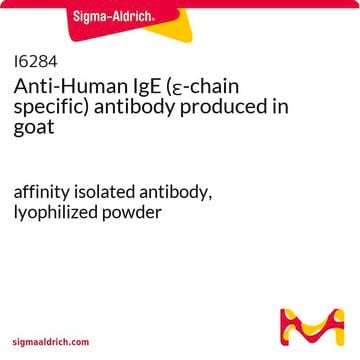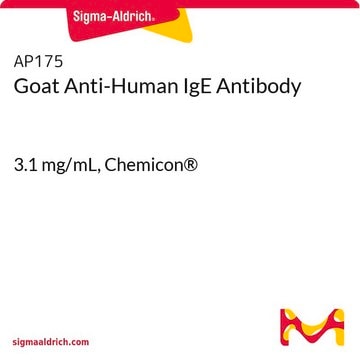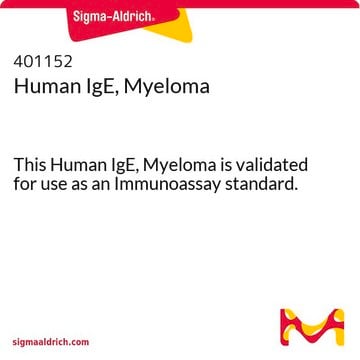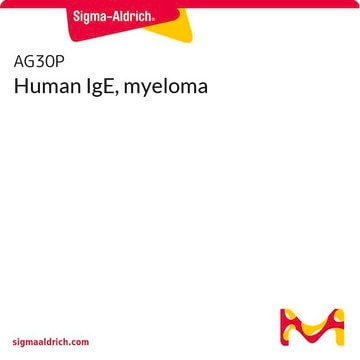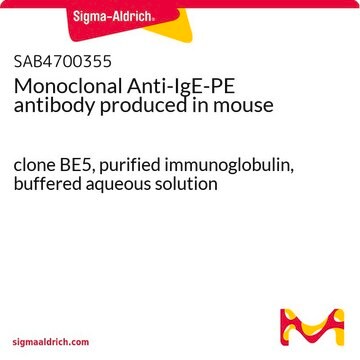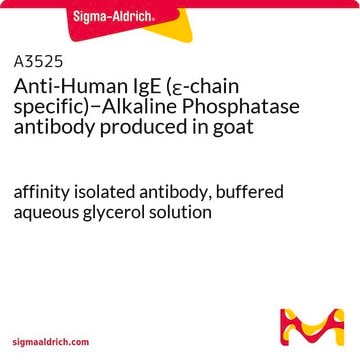The concentration of antibody in this ascitic fluid is typically in the range of 6 to 10 mg/mL.
I6510
Monoclonal Anti-Human IgE antibody produced in mouse
clone GE-1, ascites fluid
Sinonimo/i:
Monoclonal Anti-Human IgE
Scegli un formato
Scegli un formato
About This Item
Prodotti consigliati
Origine biologica
mouse
Coniugato
unconjugated
Forma dell’anticorpo
ascites fluid
Tipo di anticorpo
secondary antibodies
Clone
GE-1, monoclonal
contiene
15 mM sodium azide
tecniche
indirect ELISA: 1:5,000
Isotipo
IgG2b
Condizioni di spedizione
dry ice
Temperatura di conservazione
−20°C
modifica post-traduzionali bersaglio
unmodified
Cerchi prodotti simili? Visita Guida al confronto tra prodotti
Categorie correlate
Descrizione generale
Specificità
Applicazioni
Azioni biochim/fisiol
Stato fisico
Stoccaggio e stabilità
Risultati analitici
Esclusione di responsabilità
Non trovi il prodotto giusto?
Prova il nostro Motore di ricerca dei prodotti.
Codice della classe di stoccaggio
10 - Combustible liquids
Classe di pericolosità dell'acqua (WGK)
nwg
Punto d’infiammabilità (°F)
Not applicable
Punto d’infiammabilità (°C)
Not applicable
Scegli una delle versioni più recenti:
Certificati d'analisi (COA)
Non trovi la versione di tuo interesse?
Se hai bisogno di una versione specifica, puoi cercare il certificato tramite il numero di lotto.
Possiedi già questo prodotto?
I documenti relativi ai prodotti acquistati recentemente sono disponibili nell’Archivio dei documenti.
I clienti hanno visto anche
-
Could I know the approximate yield of this ascitic liquid (purification by affinity)?
1 answer-
Helpful?
-
Active Filters
Il team dei nostri ricercatori vanta grande esperienza in tutte le aree della ricerca quali Life Science, scienza dei materiali, sintesi chimica, cromatografia, discipline analitiche, ecc..
Contatta l'Assistenza Tecnica.
